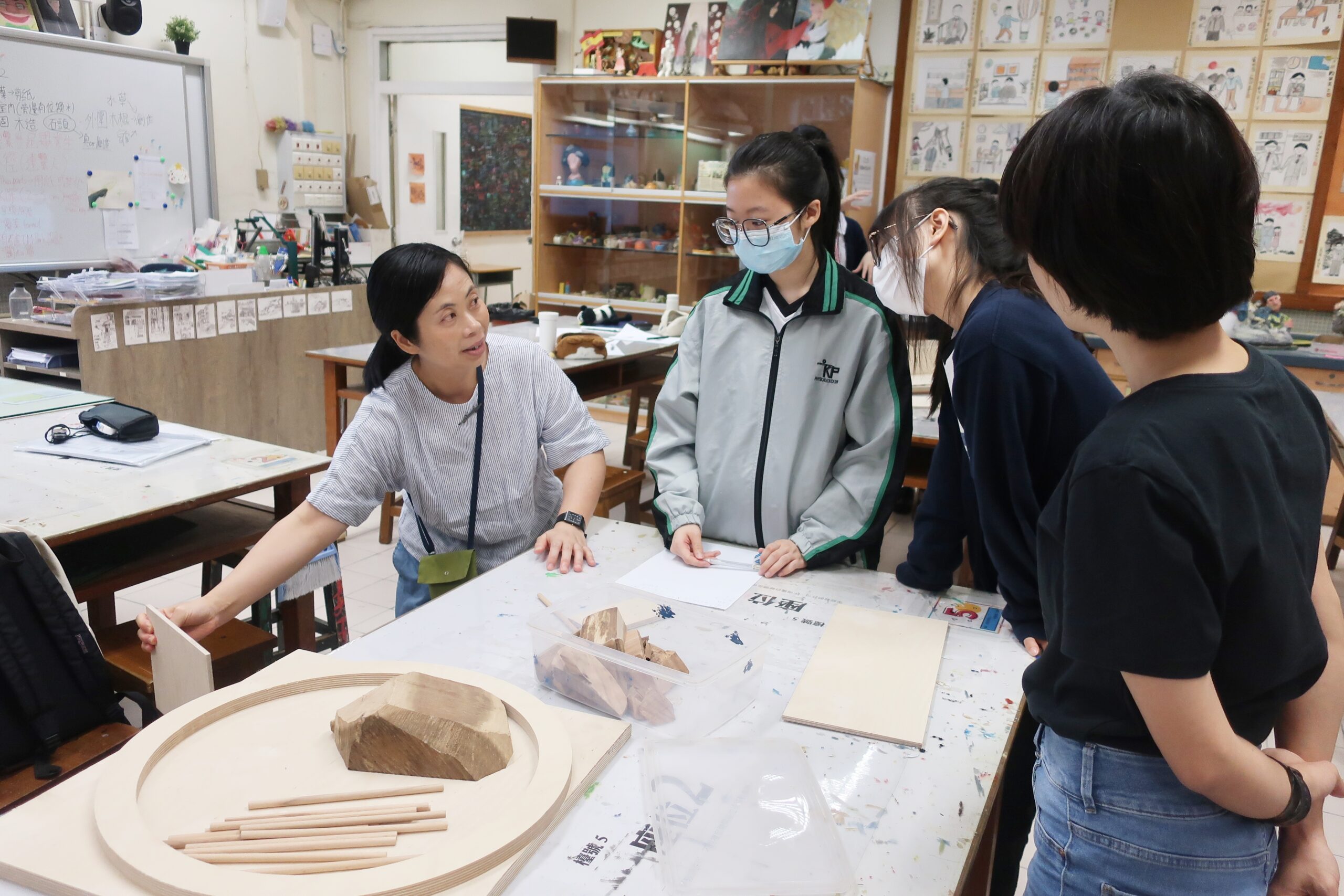1st round 2023 to 2024 Community in Coexistence: Introduction & curatorial statement
Human (students) : Nature

Sandy Chan
Project Chief Curator and educator
What kind of experiential journey can a “Co-Learning Squad” be?
Living in Coexistence
In class, I like to use the relational notation “______ : ______“ to guide students in understanding and exploring “Coexistence” Why not start with yourself and try exploring the relationship of “self : the people, events, and things around you”? How have these interactions been lately?
Coexistence can involve a very broad range of interfaces—for example, from “self : world/earth/universe” to “person : community/nature/people” or even narrowing the focus to “self (the inner, truly at-ease self) : self (the outwardly adorned self)”.
Have you been doing okay lately?
On this occasion, I am grateful to take part in planning the first round, and so I sought to respond to the “once-in-500-years Hong Kong-historical flooding – the climate crisis at our doorstep” happening. From this, I designed an initiative using “curiosity and discovery” as the entry point : “Is there a river in the community around where you live? Do you call it a river or a channel? Do you remember its name? What is your relationship with it?”
My team of educators are a group of passionate mentors major in various disciplines of artistic creation and ecology. We have planned a series of experiential learning activities in alignment with the school curriculum and the students’ backgrounds. Through collaborative small-group work — the essence of a squad — we hope everyone will rediscover the relationship of “self (human) : nature” and reflect on how we’ve been getting along in recent years. By “everyone”, we mean not only relationships among students, but also between teachers and students, and between teachers and the various educators. These multi-layered exchanges and learning experiences are also a vital part of the “Coexistence Experience” journey I’ve designed.
Furthermore, the ultimate goal is not to have students decide, “I must become a coexistent human being”. Rather, the hope is that, along this journey, students will first take a small step toward their own curiosity, discover and try to accept their personalities and qualities, and explore what feelings and thoughts arise for them within different states of “relationship”. Recognizing that “I do have my own thoughts and choices” is an important discovery on this journey — “self : me“.
And in fact, when we encounter situations where “non-existence means we’re not a good fit”, how can we learn to face such relationships? Learning—meaning: how do we continue such trial and error process within our everyday routine? This is perhaps what I most want to invite everyone to contemplate in an immersive way.
Share